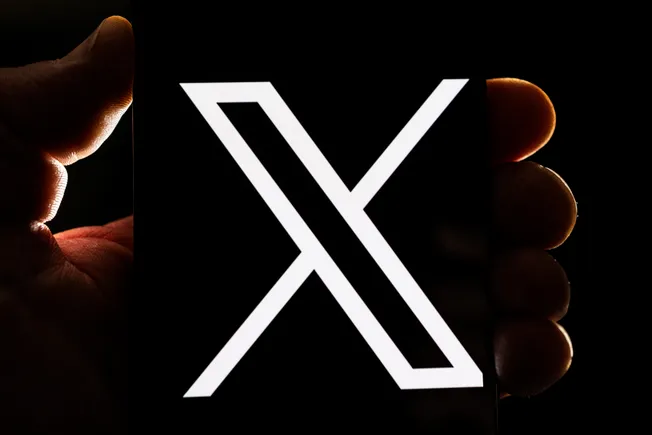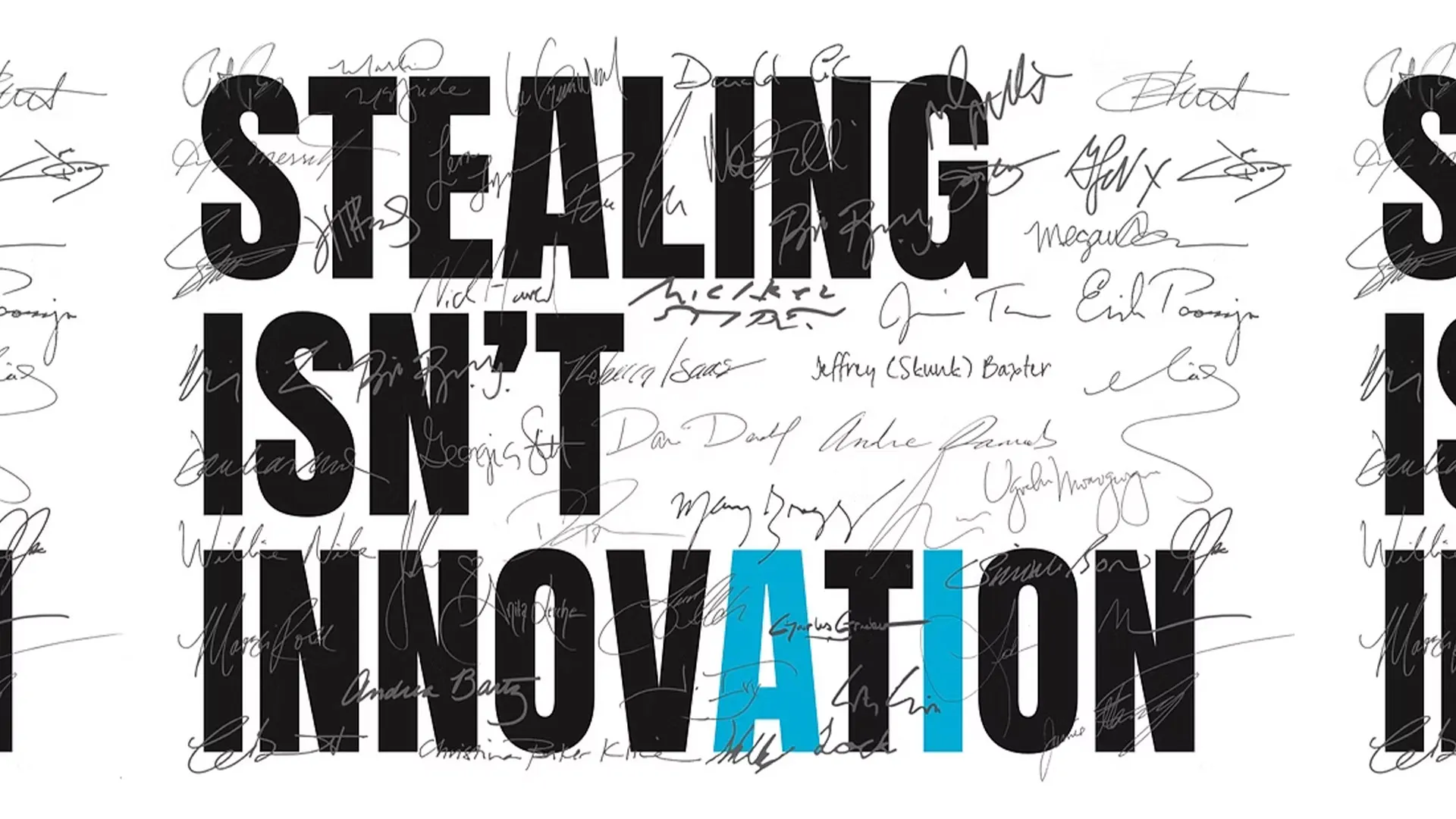#copyright
#copyright
[ follow ]
#disclaimer #liability #accuracy #content-accuracy #intellectual-property #figure-skating #generative-ai
#intellectual-property
fromIPWatchdog.com | Patents & Intellectual Property Law
3 months ago
Intellectual property law
Other Barks & Bites for Friday, November 7: CJEU Action Against EU Commission Referred Over SEP Regulation; Ninth Circuit Affirms CoComelon Copyright Win; and C4IP Urges USTR to Address IP Concerns in USMCA Joint Review
Intellectual property law
fromIPWatchdog.com | Patents & Intellectual Property Law
5 months agoPlaintiffs Propose Plan for Landmark $1.5 Billion Copyright Settlement Process with Anthropic
Anthropic agreed to a record copyright settlement after allegations it used hundreds of thousands of unauthorized books to train its Claude AI chatbot.
fromItsnicethat
1 week agoWho Owns This Book? The guide for every designer's worst nightmare: copyright
"There's a tension in the design of the book that I was exploring, between making it feel super contemporary and colorful, and leaning into more traditional aesthetics of archives and historical content. I wanted to honor both," says Michele. "Copyright law can also be kind of intimidating, so I wanted to use the design of the book to make the content more approachable and engaging."
Typography
fromExchangewire
1 week agoDigest: Disney Takes On Bytedance Over AI Video App; Alliance of Independent Agencies Launches Middle East Chapter
ByteDance has pledged to tighten controls around its AI video generator, Seedance, after facing legal threats from Disney and growing criticism from other Hollywood studios over alleged copyright violations. The latest iteration of the tool, Seedance 2.0, has seen a surge of hyper-realistic AI-generated clips circulating on social media, some appearing to feature characters from major film franchises.
Artificial intelligence
#patents
fromIPWatchdog.com | Patents & Intellectual Property Law
1 week ago
Intellectual property law
Other Barks & Bites for Friday, February 13: CAFC Says NHK-Fintiv is General Policy Statement; Second Circuit Adopts Rule on Waiver of DMCA Safe Harbor; and Daren Tang Nominated for Second Term as WIPO Director
fromBusiness Insider
1 week ago'Tom Cruise' and 'Brad Pitt' fight over Jeffrey Epstein in a viral AI video created using China's buzzy new Seedance tool
In a new viral AI video, Brad Pitt and Tom Cruise pummel each other on a rooftop in a cinematic action sequence. It's not a trailer for a new blockbuster, and it's not actually Pitt and Cruise, though it looks a lot like them. The video is so realistic, in fact, that the clearest sign it's made with AI is the dialogue.
Artificial intelligence
fromConsequence
2 weeks agoJonny Greenwood Demands Phantom Thread Score Be Removed from Melania Documentary
The Melania Trump documentary includes a portion of Jonny Greenwood's Oscar-nominated score to the Paul Thomas Anderson film Phantom Thread. In a new statement released Monday, Greenwood said that while he does own the copyright to the score, Universal Pictures "failed to consult [him] on this third-party use which is a breach of his composer agreement." "As a result Jonny and Paul Thomas Anderson have asked for it to be removed from the documentary," the statement adds.
Film
Intellectual property law
fromPatently-O
3 weeks agoGovernment Urges Supreme Court to Deny AI Copyright Case, Emphasizing Narrow Question and Statutory Text
Current statute requires human authorship for copyright; recognizing autonomous AI as an author is unsupported, while human-AI collaboration questions remain unresolved.
fromwww.nature.com
3 weeks agoPublisher Correction: Nanotyrannus and Tyrannosaurus coexisted at the close of the Cretaceous
Since the version of the article initially published, the copyright line has been amended to North Carolina Department of Natural and Cultural Resources and James Napoli, under exclusive licence to Springer Nature Limited in the HTML and PDF versions of the article.
fromEngadget
3 weeks agoPublishers are blocking the Internet Archive for fear AI scrapers can use it as a workaround
"A lot of these AI businesses are looking for readily available, structured databases of content," Robert Hahn, head of business affairs and licensing for The Guardian, told . "The Internet Archive's API would have been an obvious place to plug their own machines into and suck out the IP."
Media industry
fromKotaku
3 weeks agoGoogle's New AI Tool Makes Bad Rip-Offs Of Mario, Zelda Games
Google has just started rolling out access to its new "experimental research prototype" Project Genie, an AI tool powered by Genie 3 and Gemini that allows users to create interactive, explorable worlds with a simple text prompt. Unsurprisingly, someone has immediately used it to generate a bunch of playable Nintendo knock-offs, including a The Legend of Zelda: Breath of the Wild clone, complete with a usable paraglider.
Artificial intelligence
Intellectual property law
fromIPWatchdog.com | Patents & Intellectual Property Law
4 weeks agoDOJ Urges Supreme Court to Deny Cert in Thaler's Latest Bid to Copyright Work Created by AI
DOJ urged Supreme Court to deny AI-authored copyright; courts and Copyright Office held that copyright requires a human author and machines cannot own property.
fromwww.theguardian.com
4 weeks agoCopyrighted art, mobile phones, Greenland: welcome to our age of shameless theft | Jonathan Liew
On the way home, I screenshot and crop a news article and share it to one of my WhatsApp groups. In another group, a family member has posted an AI-generated video (forwarded many times) of Donald Trump getting his head shaved by Xi Jinping while Joe Biden laughs in the background. I watch the mindless slop on my phone as I walk along the main road, instinctively gripping my phone a little tighter as I do so.
Intellectual property law
fromConsequence
4 weeks agoSpotify and Big 3 Record Labels Sue Anna's Archive for $13 Trillion (!) Alleging Theft
Spotify and the Big 3 record labels - Universal Music Group, Sony Music Entertainment, and Warner Music Group - have filed a lawsuit against Anna's Archive, alleging the pirate platform scraped 86 million music files, and claiming an eye-popping $13 trillion in damages. Anna's Archive, formerly known as the Pirate Library Mirror, is accused of "brazen theft of millions of files containing nearly all of the world's commercial sound recordings," according to the full complaint.
Music
Intellectual property law
fromIPWatchdog.com | Patents & Intellectual Property Law
1 month agoFourth Circuit Partially Reverses District Court in Latest Chapter of Decade-Long Blackbeard Copyright Case
Fourth Circuit reversed and vacated district rulings, finding Allen's new copyright theory lacked extraordinary circumstances and directing dismissal with prejudice.
Marketing
fromBuffer: All-you-need social media toolkit for small businesses
1 month agoThe Ultimate Guide to GIFs: How to Create Them, When to Use Them and Why They're Essential for Every Marketer -
GIFs are animated image files that enhance digital communication, easily created using tools like GIPHY, Canva, or Photoshop and useful for marketing.
fromIPWatchdog.com | Patents & Intellectual Property Law
1 month agoCreators Launch Campaign to Counter Big Tech's Alleged AI Copyright Theft
The campaign argues that in the race for dominance in the new GenAI technology, some of the world's wealthiest tech companies, along with private equity-backed ventures, have engaged in a "massive rip-off" of creative content without authorization or compensation. According to the campaign, this practice "imperils U.S. jobs, economic growth and global 'soft power' supported by the U.S. creative industries." The campaign warns that this widespread infringement erodes the foundation of the U.S. entertainment industry and disincentivizes the creation of new works.
Intellectual property law
fromBoston Condos For Sale Ford Realty
1 month agoBeacon Hill Condos And Apartments: A Note About Beacon Hill Boston Condos For Sale Ford Realty
The property listing data and information, or the Images, set forth herein were provided to MLS Property Information Network, Inc. from third-party sources, including sellers, lessors, landlords, and public records, and were compiled by MLS Property Information Network, Inc. The property listing data and information, and the Images, are for the personal, noncommercial use of consumers having a good faith interest in purchasing, leasing, or renting listed properties of the type displayed to them
Real estate
Intellectual property law
fromBusiness Matters
1 month agoLegal experts warn UK firms of rising AI risks in 2026 as regulation tightens
Businesses must tighten governance of AI use to avoid escalating legal, financial and reputational risks from copyright, data protection breaches, and misleading AI outputs.
fromElectronic Frontier Foundation
1 month agoCopyright Should Not Enable Monopoly
There's a crisis of creativity in mainstream American culture. We have fewer and fewer studios and record labels fewer and fewer platforms online that serve independent artists and creators. At its core, copyright is a monopoly right on creative output and expression. It's intended to allow people who make things to make a living through those things, to incentivize creativity. To square the circle that is "exclusive control over expression" and "free speech," we have fair use.
Intellectual property law
fromElectronic Frontier Foundation
1 month agoStatutory Damages: The Fuel of Copyright-based Censorship
Imagine every post online came with a bounty of up to $150,000 paid to anyone who finds it violates opaque government rules-all out of the pocket of the platform. Smaller sites could be snuffed out, and big platforms would avoid crippling liability by aggressively blocking, taking down, and penalizing speech that even violates these rules. In turn, users would self-censor, and opportunists would turn accusations into a profitable business.
Intellectual property law
fromComputerWeekly.com
1 month agoUK copyright unfit for protecting creative workers from AI | Computer Weekly
Widespread concern about the use of creative works to train artificial intelligence (AI) systems has prompted the UK government to begin exploring how the country's copyright rules can be changed to satisfy the complex, often conflicting demands of both the creative and tech sectors. As it stands, the government is due to publish a report and impact assessment of each of the four options available on 18 March 2026, which were set out in a previous consultation that ran from December 2024 to February 2025.
Intellectual property law
fromDigiday
1 month agoThe Rundown: Google has drawn its AI payment lines - and publishers' leverage is narrow
Google's testimony to U.K. lawmakers this week did more than restate familiar arguments about fair use and training. It clarified the boundaries of what the company believes it should, and should not, pay publishers for in the AI-driven search ecosystem. For publishers trying to navigate AI licensing, the message was blunt: Google is willing to pay for access, but not for training - and it remains unwilling to define AI Overviews as a compensable use of journalism.
Artificial intelligence
[ Load more ]
























